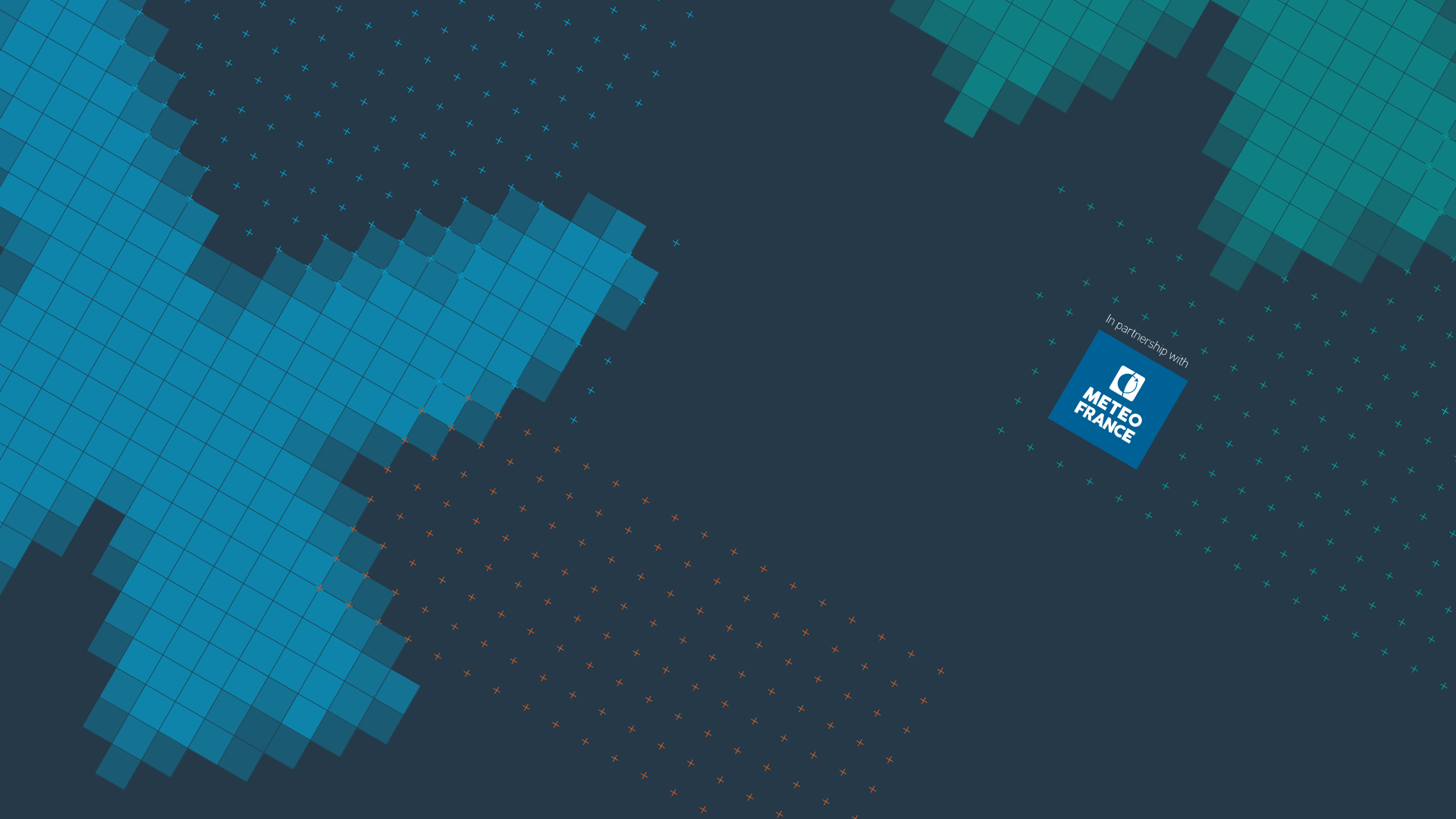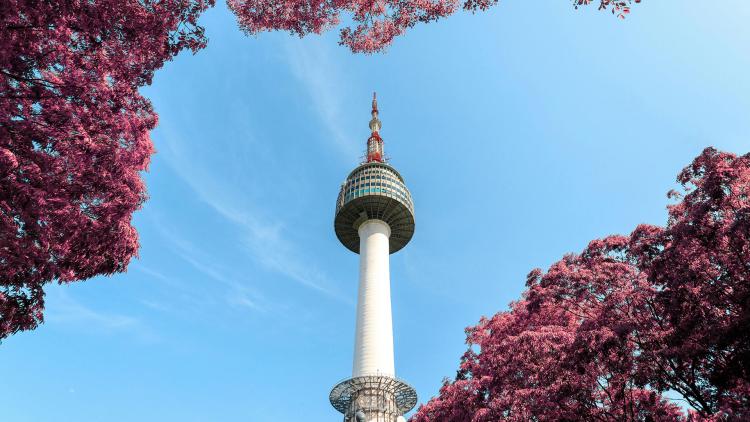
EUMETSAT Meteorological Satellite Conference 2025
Lyon, France 15-19 September 2025
Second Announcement


The 2025 EUMETSAT Meteorological Satellite Conference took place in Lyon, France from 15 to 19 September. EUMETSAT was joined in the organisation and hosting of the event by Météo-France, the national provider for weather and climate services in France.
01 December 2025
07 October 2024
Over the years, the EUMETSAT user conference has become a key annual event for the meteorological and scientific communities where participants from around the world can meet to share their experience and knowledge during plenary, poster and workshop sessions.
The theme of this year’s annual EUMETSAT conference was “From Space to Safety: Earth Observation for Future Weather and Climate Preparedness”.
Presentations
The presentations from the 2025 EUMETSAT conference are now available for download here.
To search for presenter names or keywords use the search field on the top of the page.
To search for a day, session room, session block or posters use the menu on the left side.
The programme overview is available here.
Interactive programme / abstract brochure
To view the interactive conference programme / abstract brochure click here.
Watch the plenary sessions of the conference via the EUMETSAT Youtube channel
Monday 15 September 2025
09:00 – 11:55 2025 EUMETSAT Meteorological Satellite conference – Opening session
Tuesday 16 September 2025
09:00 – 10:00 How do we measure the current and future value of satellites?
Wednesday 17 September 2025
09:00 – 10:00 Fiducial Reference Measurement supporting EUMETSAT products and services
10:00 – 18:00 Future mission requirements: New operational programmes and preparedness studies
Thursday 17 September 2025
09:00 – 10:00 Observing the oceans from space, from the actual to the future
Friday 19 September 2025
09:00 – 10:00 ECMWF in its 50th year, what is the future of Numerical Weather Prediction?
13:00 – 13:30 2025 EUMETSAT Meteorological Satellite conference – Closing session
Session topics
The overarching theme emphasizes the pivotal role of satellite technology and Earth observation in addressing global challenges related to weather prediction, climate change, and environmental safety.
Each session-topic contributes to this narrative by highlighting advancements, opportunities, and strategies for leveraging space-based technologies for societal benefits.
After our initial call for session themes proposals, we have consolidated the following themes:
1. Introductory session on international EO programmes
This session aims at providing an overview of National and International Programs for Environmental Satellites. We will invite the satellite operational agencies and research institutions to present their present and future horizons for Environmental satellite programmes. The first day's introductory session will provide an overview of National and International International EO programmes.
2. The EUMETSAT new generation fleets, from GEO to LEO: making us ready for the next 2-5 years
The EUMETSAT new generation fleets session, from GEO to LEO, aims to evaluate Meteosat 12's operations and its impact on nowcasting for high impact weather and other application areas. By 2025, we expect the launch of the first EUMETSAT polar system payload and a consolidated assessment of the Arctic Weather Satellite. The session will focus on scientific preparatory work to highlight application areas for the instruments, explore synergies with other missions, and incorporate AI and machine learning methods. We will focus around four key blocks with a leaning to operational meteorology:
- Meteosat Third Generation: Initial assessments and applications
- Preparation for second-generation LEO and Meteosat sounder
- Arctic Weather Satellites: Preliminary results review
- Synergies across platforms, considering both calibration and new unforeseen products
The sub-sessions will be:
2.A. FCI
2.B MTG - S/UVN
2.C Synergy
2.D AWS/Sterna
2.E EPS-SG
2.F MTG-LI
3. How will the prediction landscape evolve along with the use of satellites?
With advancements in impact weather forecasting and climate information into decision making processes, it's time to examine operational prediction systems. We invite abstracts on using satellite data for predictions from minutes to weeks, focusing on ocean, land, and atmosphere interactions and their impact on coupling modelling. We're interested in nowcasting methods, coupled prediction systems, data assimilation, and training machine learning with observations. The session provides an opportunity to share results from observation impact studies, improved data usage, and new machine learning capabilities. An invited talk for ECMWF's 50th anniversary will also be part of this session. The concept involves having three main blocks focused on operational meteorology with abstract covering:
- NWP and nowcasting: transitioning from traditional methods to machine learning, leveraging satellite data.
- Coupled Earth System interfaces: identifying impactful satellite data.
- Advanced data assimilation, AI, and post-processing: maximising satellite data usage.
4. Status and evolution of altimetry from space
The launch of Sentinel-6B and Sentinel-3C will extend the Copernicus altimeter constellation for 5 to 7 years. The Sentinel-3 Next Generation Topography mission will revolutionise satellite altimetry for weather and ocean forecasting. The climate data record of global and regional sea level change, now 32 years long, will surpass 50 years with the Sentinel-6 NG mission. We will assess the achievements of current altimetry data and discuss needs for upcoming missions, including applications in climate and ocean science, operational oceanography, and prediction systems.
Sub-sessions will cover:
- A Overview
- B Processing and error budget
- C Applications
5. Towards new operational programmes and preparedness studies
This session delves into the evolving landscape of user requirements in the space sector, with a forward-looking approach to the next 5 to 20 years. Key discussions will include predicting the evolution of existing and emerging services, along with the development of platforms and tools that enhance service delivery. Participants will explore long-term trends in observational science, focusing on advancements in satellite-based and complementary technological solutions. Additionally, the session will address monitoring the architecture of the space sector, emphasizing innovative design scenarios and leveraging off-the-shelf solutions to meet future demands. Join us for insights into shaping the future of space-based services and technologies. This session will comprise four key blocks with abstracts and presentations covering:
- Special session on future mission requirements (invited speakers, a full day)
- A sub-session aiming to provide insights into shaping the future of space-based services and technologies, focusing on cost sustainability, innovation, and collaboration across various sectors. Advancing Low Earth Orbit programs, optimizing satellite and ground systems for cost efficiency, and strengthening service delivery through cross-sector partnerships define the future of space-based technologies.
- Enhancing our observational capabilities of Earth's system interfaces (i.e., Planetary Boundary Layer, chemistry and clouds, stratosphere and troposphere)
- Innovations in Earth Observation Retrieval Algorithms – AI and Traditional Approaches
The conference sub-sessions will be:
5.A Future mission requirements – special session
5.B innovation, from sustainability to cross-collaboration
5.C Earth's system interfaces
5.D AI
5.E Future missions
6. Satellite data in key decision-making applications
Satellite data play an essential role in building the climate data record and trusted reference products, with simultaneous multi-decadal observations and multi-mission efforts, and from a holistic, Earth Systems perspective. They are essential drivers of downstream, multi-sector, user applications such as water management, just energy transition and any impact-based assessments and applications, including high-impact weather events at short lead times and longer time scales.
This session will cover the role of leveraging satellite data in decision-making, as the stimulant of innovation-driven applications across time scales, from weather prediction to the development of climate adaptation and resilience action plans, goals and strategies. Here we will have multiple key blocks with abstracts dealing with:
- The role of satellite data as drivers of innovation, user-centric applications and in decision-making
- The role of land and hydrological satellite products to support hazard forecasting and mitigation
- Cutting-edge research and practical applications of satellite data in energy meteorology
The conference sub-sessions will be:
6.A.1 Satellite data as drivers of innovation: nowcasting/convective storms
6.A.2 Satellite data as drivers of innovation: air quality/atmospheric pollutants
6.A.3 Satellite data as drivers of innovation: climate or other innovations
6.B Satellite data in applications: Hydrology and water management
6.C Satellite data in applications: Energy and aviation
6.D.1 Satellite data in applications: Wildfires
6.D.2 Satellite data in applications: Land
6.E Satellite data in applications – Panel discussion: From Space to Society: the growing economic and social value of earth observation data
7. Data Integration, Open Science, and AI Innovation for advancing Earth Observation for Weather and Climate preparedness
This session invites contributions showcasing innovative data practices, transformative AI applications, and multi-platform governance solutions that advance EO for climate science and adaptation, resilience planning, and sustainable environmental management. The idea would be to have four key blocks calling for abstract in:
- Open Science and FAIR Principles: How open-source tools, FAIR-compliant practices, and open-access platforms transform EO by enhancing transparency, collaboration, and data reuse.
- Big Data and Cloud Ecosystems: Insights into advanced platforms such as the Destination Earth Data Lake (DEDL), leveraging cloud-native formats, standardized metadata, and edge computing to process petabytes of data efficiently.
- How the Earth System Modelling and Observation communities use and see the evolution of the cloud and computing infrastructures?
- Supporting European Green Goals: Examining how cloud computing and AI-driven solutions facilitate climate resilience, carbon reduction, and sustainability initiatives aligned with the European Green Deal. Considering also opportunities and risks of solar radiation modification.
The conference sub-sessions will be:
7.A Open Science and FAIR Principles
7.B Tools and Algorithms
7.C Frameworks for Enabling AI
7.D Innovative AI Applications
7.E Data Access and Cloud Ecosystems
8. Sea ice remote sensing for sustainable explorations in the Arctic
The Arctic sea ice is under rapid shrinking. This change is not only opening new opportunities for Arctic shipping and resource exploration, it is also raising new climate, environmental and ecological challenges in the Arctic. Due to harsh environment in the Arctic, satellite remote sensing has long been the main observation tool for this region. This session invites contributions of sea ice remote sensing and its applications for short-term and sub-seasonal to seasonal predictions and climate projects of the Arctic sea ice, with the purpose for sustainable explorations.









